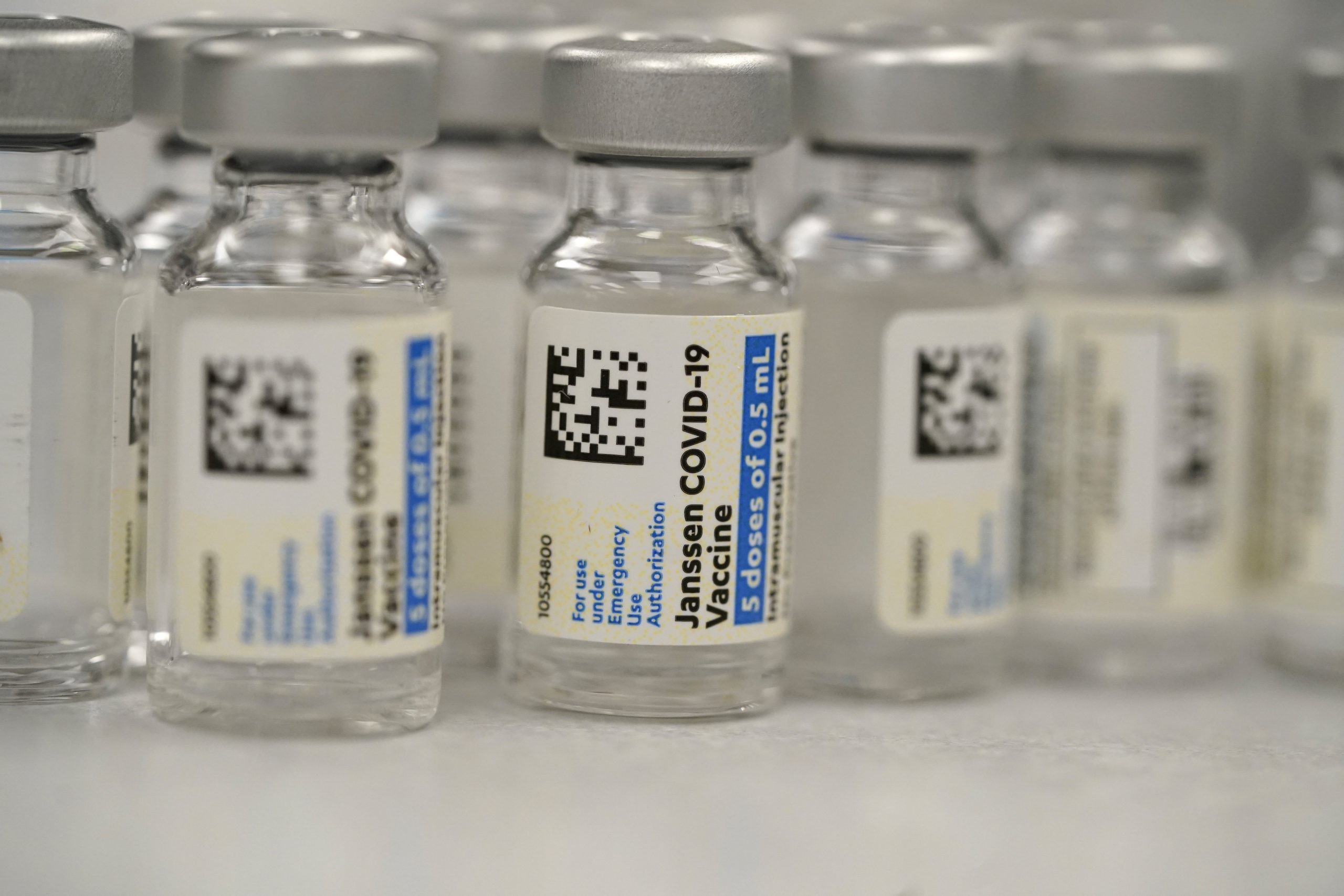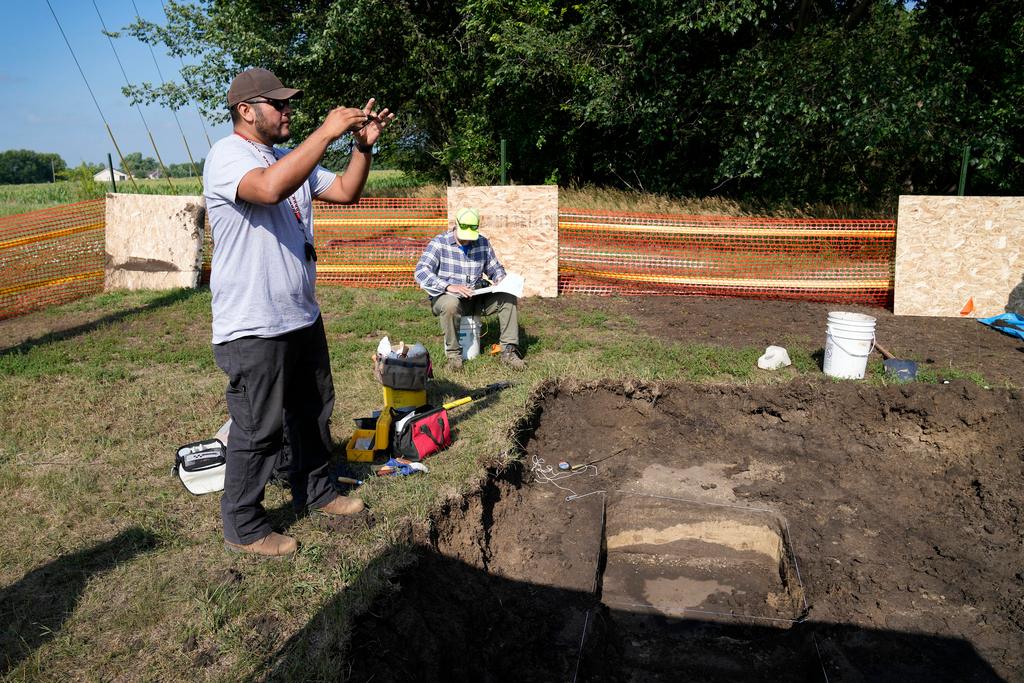
Colorado has suspended the distribution of the Johnson & Johnson COVID-19 vaccine after federal authorities announced the investigation of six cases in which people who received the vaccine developed blood clots.
“I think this pause is a strong reflection of the national oversight of vaccine safety, seeing events like this occur, something very rare, like these six blood clots, really does require us to take a moment and look around,” said Dr. Eric France, chief medical officer for the state health department during a press conference Tuesday. “The first question really is, are these events coincidental, just happening to follow the vaccine? Or are they somehow associated with vaccination? That will be the work of the next couple of days here in the United States.”
The Colorado state advisory committee on immunization practices will meet on Wednesday, to review the cases and discuss next steps. Federal regulators at the Centers for Disease Control and Prevention and the Food and Drug Administration are also reviewing the cases and trying to conclude whether the vaccine caused the blood clots or is coincidental.
“Just to put things in perspective on this, the virus has killed over 550,000 Americans, I think it's more than one in every 600 Americans that lived at the beginning of the year have died from COVID, that's a startling figure,” said Gov. Jared Polis at the press briefing. “So while it's very important to know what the different risks of vaccines are, there are none that even approach two or three orders of magnitude of the risk of the virus. So please get vaccinated.”
- FACTS & FIGURES: Vaccinations, outbreaks and other trends
- FIND A VACCINE: Your up-to-date guide to Colorado vaccines
- 'FOURTH WAVE': COVID variants are driving another surge, Gov. Polis says
Johnson & Johnson vaccine supply trails that of other vaccines in Colorado
The state has been receiving fewer than 20,000 doses of the Johnson & Johnson vaccine each week and was scheduled to only get 9,700 this week, compared to the nearly 280,000 doses of the Pfizer and Moderna vaccines. The pause is not expected to alter the state’s timeline for getting all eligible residents access to a vaccine.
However, for Denver Health which was expecting to administer another 1,000 Johnson & Johnson vaccines over the coming week, the shortage is impacting vulnerable communities such as those who are unhoused.
“We were relying heavily on the Johnson & Johnson vaccine to help us outreach to communities where it may be difficult to be able to do a follow-up second vaccine that the other products require,” said Dr. Connie Savor Price, chief medical officer at Denver Health. “In that regard, it really does impact our plans.”
While the U.S. has some of the highest vaccination rates in the world and access to two other highly effective vaccines, the danger of the possible side effects of Johnson & Johnson and AstraZeneca will likely hit other parts of the world.
“These are two of the potentially really lifesaving vaccines for the world. The AstraZeneca in particular, because it's so cheap, it's so relatively easy to manufacture, and I think 3 billion doses are slated for the rest of the world and has the potential to save a ton of lives,” said Dr. Sean O’Leary a pediatric infectious disease specialist at Children's Hospital Colorado. “Now, with this rare side effect, we'll have to see if and how it's used. If these turn out to be real, even if they don't, there may be some perception that these vaccines are inferior when in fact, at least from an effectiveness standpoint they appear to be very effective at preventing COVID-19.”
So what's the risk of the Johnson & Johnson vaccine?
France said the blood clotting condition, called cerebral venous sinus thrombosis, occurs in between 10 and 13 people out of a million in a year in the U.S. Each of the cases of blood clots that may be related to the vaccine occurred in women 18 to 48 years old, and six to 13 days after inoculation.
The state believes anyone who was inoculated with the Johnson & Johnson vaccine a month or more ago has no reason for concern, but anyone who received a shot of the single dose that vaccine in the past three weeks should watch for symptoms such as a severe headache, abdominal pain, leg pain or shortness of breath. If any of those occur, contact your health care provider.
While rare, the clotting disorder can be devastating. One of the six women died, and four had strokes, according to Savor Price, chief medical officer at Denver Health. The clotting disorder can be triggered by drugs, vaccines or infectious diseases. The clots occur in places like the brain or abdomen but are accompanied by low platelet levels, which strangely are what help blood to clot.
“The problem is that when they're in the brain, they can cause strokes,” Savor Price said. “So this is very serious. It's very different than just a side effect of maybe something simple like nausea, vomiting, muscle aches or fever. This is something that even though extremely rare may warrant intensive scrutiny of whether we can continue to provide it.”
But she cautioned, while the Johnson & Johnson vaccine is under investigation, the Pfizer and Moderna vaccines have been given to far more people and do not have severe effects. She said everyone should get vaccinated and continue to wear a mask and social distance until more of the population is vaccinated.
Why might the vaccine cause this disorder?
The Johnson & Johnson vaccine and the AstraZeneca vaccine are both made from adenovirus vectors, which are types of viruses (not COVID-19) in the vaccine that have some of the COVID-19 genes which causes the body to mount an immune response. The similarities in the vaccines and in the blood clotting seen after could point to a causal relationship rather than a coincidence, said Savor Price. The clotting disorder is an immune reaction that can be triggered by drugs, vaccines and other infectious diseases.
“It is likely we will see that connection and how we then respond to that, whether it's a certain population that we have to avoid vaccinating or whether we're just not comfortable with giving it at all -- that is what the American college of immunization practices now is reviewing,” she said.
But we won’t know until investigators determine the connection, which is expected in the coming days.
When compared to other vaccines, these side effects are unusual, said O’Leary at Children's Hospital Colorado.
“This isn't something that we've seen with any of the vaccines, for example, in the routine schedule. The closest example I would give is severe allergic reactions that we saw some when these mRNA vaccines rolled out, but those are very rare,” said O’Leary, who’s on the Advisory Committee on Immunization Practices – the group that advises the CDC on vaccines.
O'Leary said about 2.5 in a million people experienced severe allergic reactions from the mRNA COVID-19 vaccines. "So very, very rare. Other than that we really don't see side effects like this,” he added.
While worrisome, O’Leary, Savor Price and others stressed that the system to catch these kinds of issues is working.
“The fact that the FDA has put a hold based on that very small number, I think should be instead of concerning, I think it should be quite comforting to the people in the United States, people here in Colorado, people in Jefferson County, this shows that the system is working, the safety net is working,” said Dr. Dawn Comstock, director of Jefferson County Public Health Department.
Pause comes as COVID-19 cases across the state are on the rise
The Johnson & Johnson vaccine pause comes as cases are increasing in the state, including an increase in cases of COVID-19 variants. On Monday, there were 1,904 new cases out of 19,231 people tested in Colorado. That resulted in a 7.84 percent positivity rate, which is the highest daily rate seen in weeks. The seven-day rate sits at just under 6 percent. Public health officials advise the rate should stay below 5 percent for safe reopening.
While cases are going up as the state reopens Polis says testing is down.
“That's one that we can immediately do something about. If you are ill experiencing flu like symptoms or think you were around someone who coughed at the grocery store or a family member that may have had COVID, please get tested,” he said. “It's never been easier.”
More than 1.3 million people in the state are fully vaccinated, and 2.3 million people have received at least one dose, that’s about a third of the state’s eligible population.
“But the pandemic is certainly not over yet. There are still unknowns, particularly with the many variants of concerns that our department is tracking daily,” said Jill Hunsaker Ryan, director of the state health department. “We now estimate that more than half of all cases occurring in Colorado are due to what the CDC has termed variants of concern. We need to continue to be vigilant.”
Colorado has confirmed 1,578 cases of the B117 or the UK variant, 12 cases of the P1 Brazil variant, 25 cases of the B1351 South African variant and 516 cases of the B1427 and B1429 California variant.
“So far, all three vaccines are effective against all variants. However, the variants are more contagious and therefore more deadly,” said Polis. “They simply spread easier, and when they spread easier they infect more people.”
Not the first issue with the vaccine
A mass vaccination site last week at Dick’s Sporting Goods Park in Commerce City was paused for the day after about a dozen people complained of dizziness or shortness of breath. The health system said it has not administered the Johnson & Johnson vaccine since the April 7 pause, according to a press release. No one had to be hospitalized and symptoms were treated with juice and rest, but the state decided after that not to use the vaccine at weekend events.
Centura Health, which works with the state to manage the mass vaccination sites, has administered 13,500 doses of the Johnson & Johnson vaccine, that includes 7,800 at the Broadmoor World Arena drive-up clinic in Colorado Springs and 6,600 at Dick’s Sporting Goods Park in Commerce City. The Johnson & Johnson vaccine was not administered at the drive-up clinic at the State Fairgrounds in Pueblo.
Supply of the vaccine has been bumpy since it received an emergency use authorization from the FDA in late February. This week there was going to be 86 percent fewer Johnson & Johnson vaccine doses allocated to states, according to NPR.
Gov. Jared Polis directed people with Johnson & Johnson vaccine appointments to call their providers who will either switch their dose to one of the two-dose vaccines or reschedule the appointment.
Editor's Note: This story has been updated to clarify the number of severe allergic reactions reported in people who received mRNA COVID-19 vaccines.









